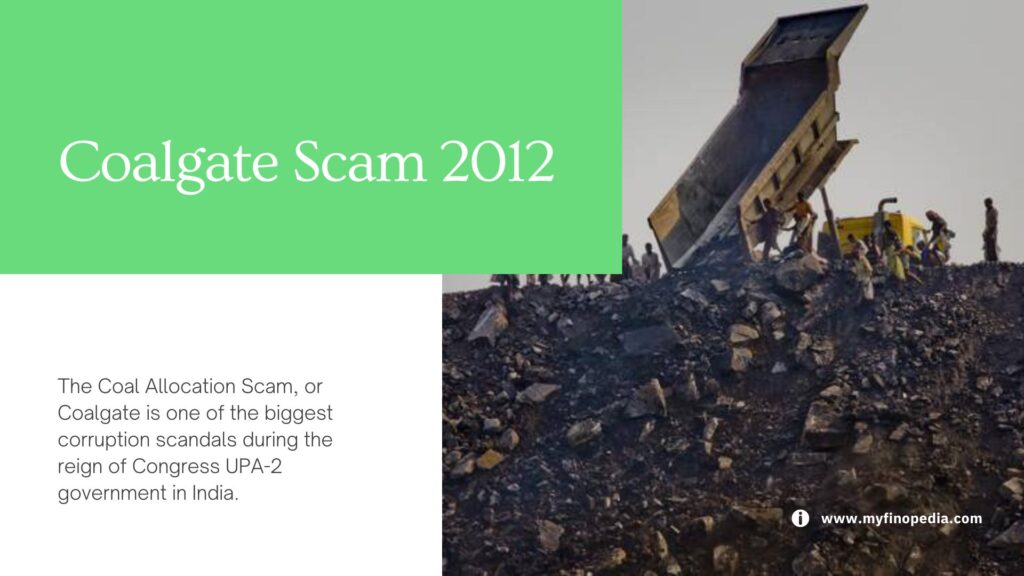The Coal Allocation Scam, or Coalgate is one of the biggest corruption scandals during the reign of Congress UPA-2 government in India. The incident played a role in shaping the public discourse around corruption & crony capitalism in the country. The scam led to massive outcry from the opposition parties, civil society, and public due to significant financial losses incurred by the government.
The aggregate losses incurred to the exchequer in the CAG report was estimated at 1.86 lakh crore. The main allegations against the government were that the government did not follow a transparent and competitive process in allocating these blocks was marred by favoritism, arbitrary decision-making, and potential corruption. Further, discrepancies in allocation of 216 blocks, mainly in the production plan of Coal India Ltd as well as the Singareni Collieries Company Limited (SCCL). The draft published in 2012 by CAG reported that the blocks were executed” inefficiently” during allocation of coal blocks during the period from the period of 2004 to 2009. It led the windfall gain of 10.7 lakh crore making it a giant distributor. The CBI (Central Bureau of Investigation) probe investigated then Prime Minister Manmohan Singh for the alleged crime. However, Prime Minister Manmohan Singh told to resign from his position, if he is proven guilty of this scam.
Subsequently, the Supreme Court decided to constitute a Special CBI court for trying all the coal blocks allocation case matters. The special court then framed former Jharkhand chief minister Madhu Koda, former MoS for Coal Dasari Narayan Rao and 13 others in relation to the coal block allocation scam. The allegations were against the irregularities in allocating the Rajhara North coal block in Jharkhand to Kolkata-based Vini Iron and Steel Udyog Ltd (VISUL).
Finally, Koda & others were sentenced for criminal conspiracy & cheating, while others were called to make their statements. Overall, it resulted in contentious debate in the Indian Parliament and called for more accountability and transparency.






